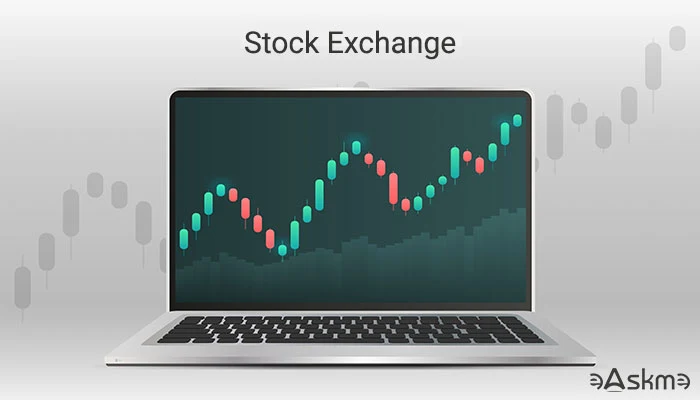The need for fast-broker services has made MyFastBroker one of the first choices. Every business or financial institution requires business brokers and Forex brokers to facilitate transactions.
A broker works as an intermediary between two or more parties. His job is to make seamless transactions possible.
MyFastBroker .com provides securities brokers, online brokers, corporate brokers, business brokers, and Forex brokers.
These brokers work for their clients to negotiate the terms, price, and project conditions.
In the modern business era, MyFastBroker plays the crucial role of finding the best brokers to deal with multiple challenges in business.
Finding the best broker is itself a challenge. This is where you need a professional broker service like MyFastBroker.
Here is everything you must know about MyFastBroker, how it works, its features, benefits, and FAQs.
MyFastBroker:
MyFastBroker is an online platform to hire professional brokers. It deals with financial transactions, such as stocks, equities, currencies, and real estate. MyFastBroker.com provides expert services in the Forex market.
It also helps your business to find suitable deals. MyFastBroker forex brokers work as an intermediary between companies or organizations to facilitate foreign exchange.
It also provides business broker services. The goal is to ensure that the contract benefits its clients.
To expand its reach, MyFastBroker launched a professional website.
MyFastBroker .com:
MyFastBroker .com was launched on 19th February 2024. Its excellent team of finance brokers is dealing with multiple projects at the same time.
The platform also provides customizable services to meet the needs of its clients.
MyFastBroker’s headquarters is in Manhattan, New York.
MyFastBroker provides multiple broker services. It also follows the regulations of Securities and Exchange Commission (SEC), and Financial Industry Regulatory Authority (FINRA).
MyFastBroker Services:
Forex Brokers:
MyFastBroker.com Forex broker services include foreign exchange between two currencies.
It deals with USD, EUR, GBP, JPY, AUD, NAZ, CAD, and CHF. Its users can also trade in other currencies.
Business Brokers:
MyFastBroker.com business brokers evaluate the value of a business based on factors like assets, revenue, and profitability. They find advertisers and buyers for their clients.
MyFastBroker negotiates the terms and conditions of sale.
Loan Brokers:
MyFastBroker loan broker services include mortgage services, business loans, student loans, personal loans, and loans with bad credit.
It also provides tips and strategies to fix bad credit scores.
Insurance Brokers:
MyFastBroker insurance broker services include car insurance and health insurance.
It also guides its clients about the insurance and claim process.
In return, the platform charges minimum consultation fees.
Stockbrokers:
MyFastBroker stockbroker services include currency trading, day trading, robo advisors, trading apps, and platforms.
It offers tips and tricks to choose the best stock to invest your money in.
Mortgage Brokers:
MyFastBroker.com mortgage broker services include finding the best loan, simplifying the loan process, and offering guidance throughout the application process.
Features of MyFastBroker:
User-friendly:
MyFastBroker.com is a user-friendly platform. It loads faster and is accessible everywhere.
Its straightforward navigation makes users follow the desired information quickly.
The MyFastBroker platform provides the latest updates, broker terms, application process, and reports.
Multiple Trading Options:
You get multiple trading options at MyFastBroker com.
As a trader, you can invest in stocks, real estate, foreign exchange, and precious metals.
Demo and Live Account:
New MyFastBroker .com users can start with a demo account.
Once you learn the process, you can choose the live account for financial transactions.
Choose the account types you can handle wisely.
Trading tools and apps:
MyFastBroker provides multiple trading tools and apps to meet the different needs.
You get access to live chatting, technical analysis, reports, charts, and robo-trading.
Security:
It is a secure platform. You can set up 2-factor authentication to secure your live account.
It also uses SSL to protect online connections.
MyFastBroker .Com Trading Apps:
MyFastBroker provides different trading apps for different broker services.
You can access these apps on your laptop or smartphone.
With different trading apps, you can trade wisely.
Benefit of MyFastBroker Trading Apps:
- Multiple options: The investor gets multiple options to access his account. You can access the account from one of multiple apps.
- Real-time stats: Trading apps provide real-time market stats. It is necessary to make crucial financial decisions.
- Multiple Assets: Trading apps deal in multiple assets like stocks, cryptos, precious metals, currencies, and real estate.
- Secure transactions: Apps are more secure than websites. You can smoothly buy or sell your assets online.
Pros and Cons of MyFastBroker.com:
MyFastBroker is a broker service platform.
It provides answers to general queries, account support, partnership opportunities, and technical support.
Here are the pros and cons of this platform:
Pros:
- Low fees: MyFastBroker charges minimum fees to facilitate transactions. Often it is between 1% and 5%.
- Learning platform: It provides financial literacy. Its blog section is filled with tips to improve finances.
- Support: It provides 24/7 support to its registered users. You get access to live chat, social media pages, and help on call.
- Market Access: MyFastBroker opens the global market for its investors. You can invest in stocks, cryptocurrencies, and forex markets globally.
Cons:
- Irregularity: Irregular broker behavior causes trouble in financial matters.
- Trading cost: It charges extra trading costs on higher investments.
- Lack of planning: The platform does not provide planning for beginners.
- Untrusted brokers: It is quite common to meet non-reliable brokers on the platform.
How to Choose the Best Broker on MyFastBroker .com?
Here are the factors that help you determine if the broker is credible or not.
- Registered broker: Make sure that the broker is registered with a reputable insurer.
- Understand accounts: before adding money to your wallet, ensure that you understand the different account types.
- Cost: Learn the trading cost and brokerage fees.
- Customer service: Call customer service and ask questions to clear up your doubts.
- Check reviews: Check online reviews of the broker and his services.
How to Get Started with MyFastBroker .com?
- Go to the MyFastBroker.com website.
- Click on “Sign up.”
- Enter your registration details.
- Select the broker.
- Fund your wallet.
- Use trading apps to invest wisely.
Conclusion:
MyFastBroker .com is a Forex broker platform. It also provides services like business brokers, loan brokers, mortgage brokers, insurance brokers, and cryptocurrency brokers.
In return, the platform charges 1% or more in fees. The brokerage depends upon the value of investment.
It is an affordable, cost-effective, secure, and reliable platform. It is best to learn from its blog section to boost your knowledge.
MyFastBroker FAQs:
What is MyFastBroker.com?
It is a registered broker's platform.
What are the MyFastBroker.com Forex Brokers' services?
It provides foreign exchange services. You can exchange your currency for dollars.
Is MyFastbroker.com Forex safe and secure?
Yes. It uses a secure online payment system to safeguard online transactions. You can use Skrill, Neteller, and PayPal for financial transactions.
How to get MyFastbroker .com Trading apps?
You can access MyFastbroker apps on Android and iOS devices.
Other helpful articles:






















.jpg)

